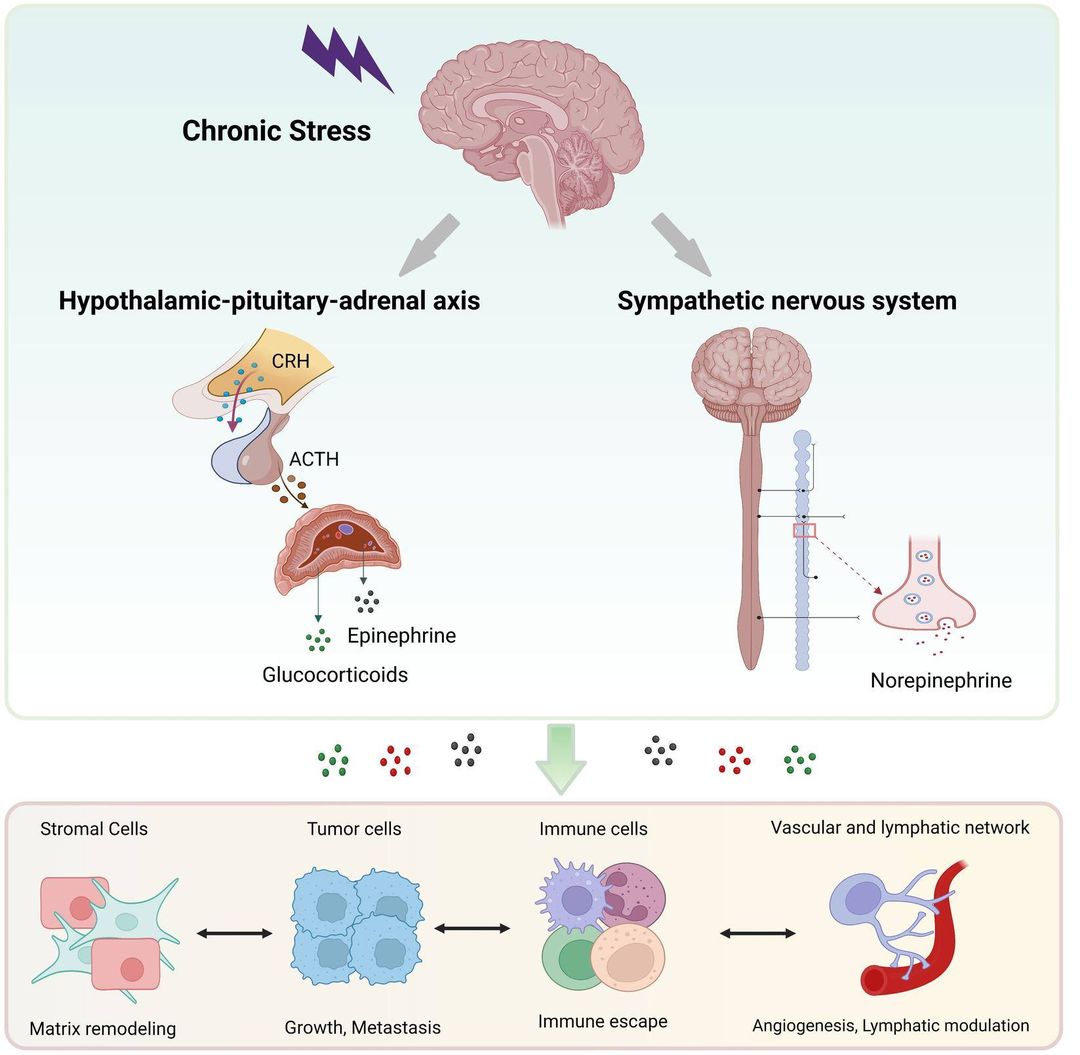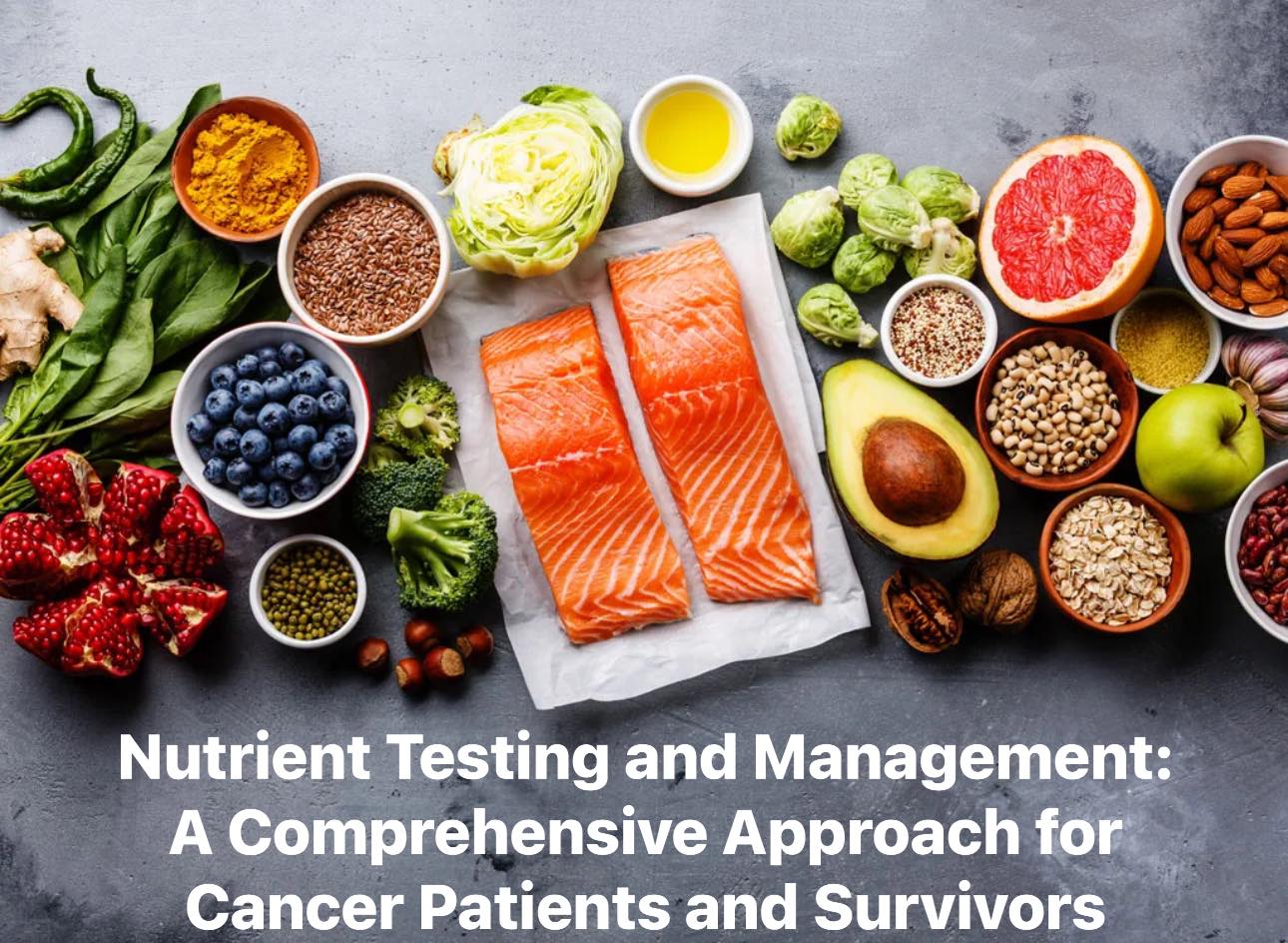Chronic Stress May Play A Significant Role In The Progression & Spread Of Cancer
There is a growing body of research showing that chronic stress may play a significant role in the progression and spread of cancer.
There is strong evidence from animal and laboratory studies that chronic stress can make cancer worse and more likely to spread (metastasize). For example, some studies have found that mice with human tumors kept in isolated or confined conditions had tumors that were more likely to grow and spread. These conditions increase stress in the mice, which may be one reason for the increased tumor growth. Further confirming this hypothesis, when the mice were treated with a stress hormone-blocking drug (beta-blocker), they had a marked reduction in cancer growth and development of metastases.
One hormone that is released as part of the body’s “fight or flight” response to stress is norepinephrine. This hormone has been found to stimulate angiogenesis and metastasis in laboratory studies. Norepinephrine may also activate neutrophils, an immune cell that can sometimes help tumors grow by protecting them from the body’s immune system or “waking up” dormant cancer cells.
Another hormone that may be released in response to chronic stress is a type of steroid hormone called glucocorticoids. These hormones have been shown to inhibit a variety of cell death called apoptosis, increase metastasis, and make cancer cells more resistant to chemotherapy. Glucocorticoids may also prevent the body’s immune system from recognizing and attacking cancer cells.
There is also some evidence that people with cancer experiencing chronic stress have a lower survival rate. Chronic stress can cause systemic changes in the body, leading to neuroendocrine and immune systems changes. These changes may activate the hypothalamic-pituitary-adrenal axis and the sympathetic nervous system, leading to the release of endocrine hormones that promote the development and growth of tumors. Activation of alpha and beta receptors can also stimulate cell cycle progression and inhibit cell death through downstream signaling pathways.
Managing Chronic Stress During Cancer Treatment:
While it may not be possible to completely eliminate stress during cancer treatment, some strategies can help patients manage stress and improve their overall well-being. These strategies may include:
- Seeking support from family, friends, and support groups
- Practicing relaxation techniques, such as deep breathing, meditation, acupuncture, Reiki, massage therapy, or yoga
- Engaging in physical activity, such as walking or exercise
- Seeking professional counseling or therapy to help manage stress and emotions
- Adaptogenic supplements (such as Panax ginseng root, Rhodiola Rosea root, Eleutherococcus senticosus root, astragalus root, ashwagandha root, and Schisandra fruit)
My Bottomline: Further research is needed to fully understand the mechanisms behind the relationship between chronic stress and cancer, but it is clear that managing stress is an important part of cancer treatment. I offer HPA-axis testing to all interested patients as part of an integrative oncology and functional medicine approach to their cancer care and survivorship. This enables a quantified assessment of biological stress, which can be monitored over time after focused stress management interventions.



